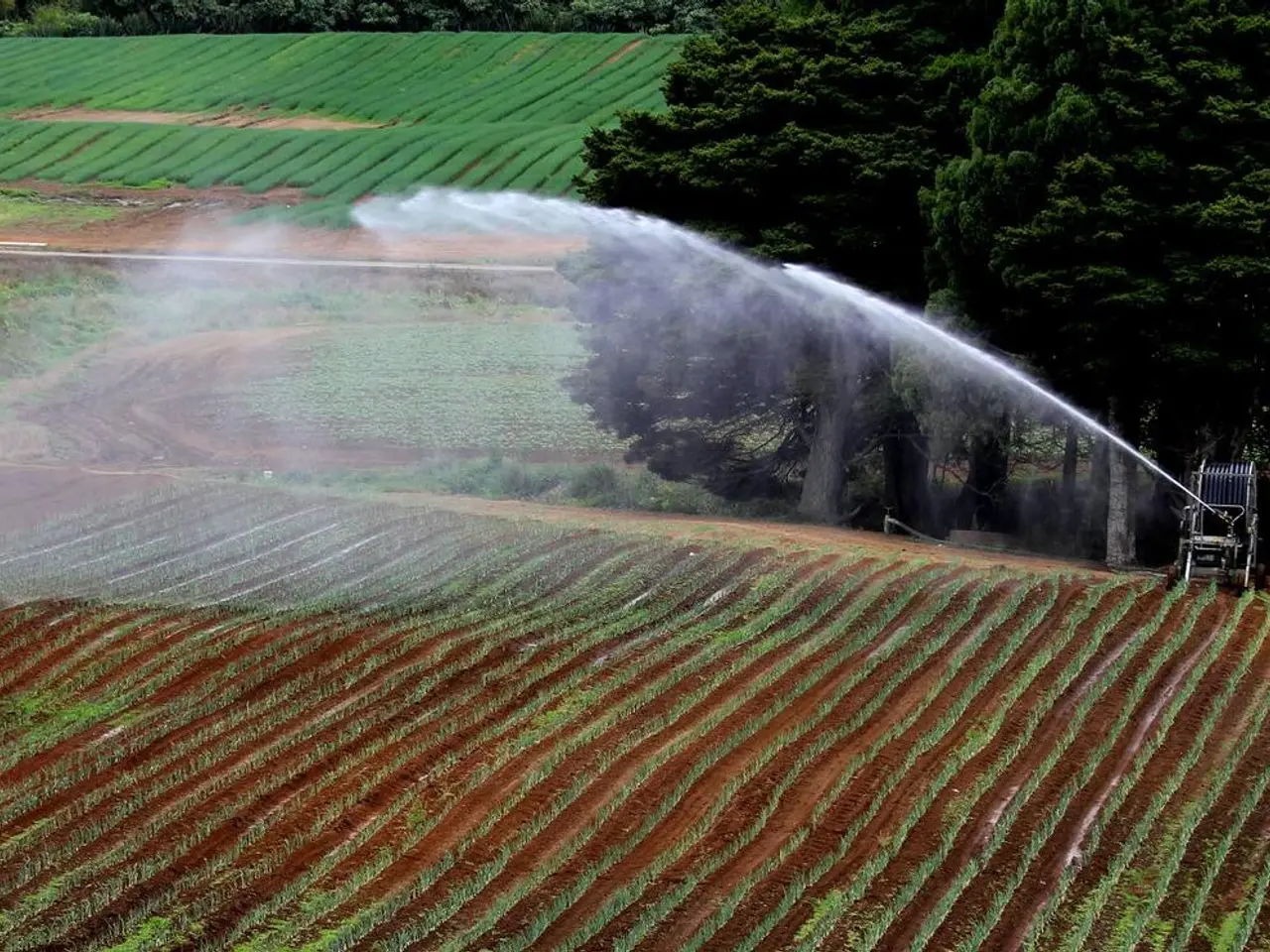Enhanced Agricultural Methods Enhance Crop Outputs
In the heart of the agricultural revolution, a modern farming practice is taking centre stage: Precision Agriculture. This innovative approach optimizes crop production using technology, aiming to improve yields, promote sustainability, and boost profits.
Precision Agriculture employs a suite of cutting-edge tools and techniques, including GPS mapping, soil sensors, drones, variable rate technology, AI-driven machinery, and data analytics. These technologies enable farmers to precisely monitor field variability and optimize inputs like seed, water, and fertilizers, reducing waste and enhancing crop performance.
GPS and Geographic Information Systems (GIS) provide accurate mapping and navigation for precise planting, irrigation, and harvesting, enabling variable rate application of inputs according to field variability. Soil sensors and remote sensing collect real-time data on soil moisture, nutrient levels, and crop health to inform targeted interventions.
Precision Seeding Systems ensure seeds are planted at optimal depth and spacing depending on local field conditions, improving seed use efficiency and crop yields. Variable Rate Technology (VRT) adjusts the amount of fertilizers, pesticides, and water applied per zone within a field, minimizing excess use and environmental impact.
Drones are used for aerial field monitoring to quickly detect crop stress or pest issues, improving timely management decisions. Autonomous machinery and automation, such as auto-steer GPS-guided tractors, robotic harvesters, and AI-powered sprayers, increase operational precision while reducing labor, fuel use, and soil compaction.
AI-Driven Precision Sprayers, like the Ecorobotix ARA Sprayer, use artificial intelligence and high-resolution optics to distinguish crops from weeds, applying herbicides only where needed and reducing chemical usage by up to 95%.
Together, these technologies form a cycle of data collection, decision-making, and automated implementation that enhances crop productivity by up to 30%, lowers costs, and promotes sustainability through reduced input waste and improved soil and environmental health. Furthermore, precision agriculture supports regenerative farming practices that can increase soil carbon storage, contributing to long-term environmental benefits.
The benefits of Precision Agriculture extend beyond enhanced productivity. Last year, there was a 20% increase in corn yield by reducing fertilizer use. Better crop management in Precision Agriculture enhances the health and growth of crops, leading to a significant improvement in crop yields.
Moreover, Precision Agriculture enables farmers to tailor their approach for different areas of a farm, applying the right amount of water, fertilizer, and pesticides where they are needed most. This targeted approach not only helps the environment but also boosts profits.
Data Analysis Software helps understand soil health trends, allowing farmers to make informed decisions about fertilizer use and crop management. The use of drones and soil sensors leads to a significant improvement in crop yields.
In summary, Precision Agriculture leverages interconnected digital tools and automation—GPS/GIS, sensors, AI, drones, and robotic equipment—to tailor farming inputs precisely to field conditions, optimizing yields and sustainability simultaneously. This modern farming practice is set to revolutionize agriculture, making it more efficient, sustainable, and profitable.
Science plays a pivotal role in the health-and-wellness aspect of modern farming, with fitness-and-exercise-like precision being applied to agriculture through the implementation of Precision Agriculture. Thistechnology-driven farming approach optimizes crop production by utilizing cutting-edge tools like GPS mapping, AI-driven machinery, drones, and data analytics, promoting crop health, sustainability, and increased yields.




